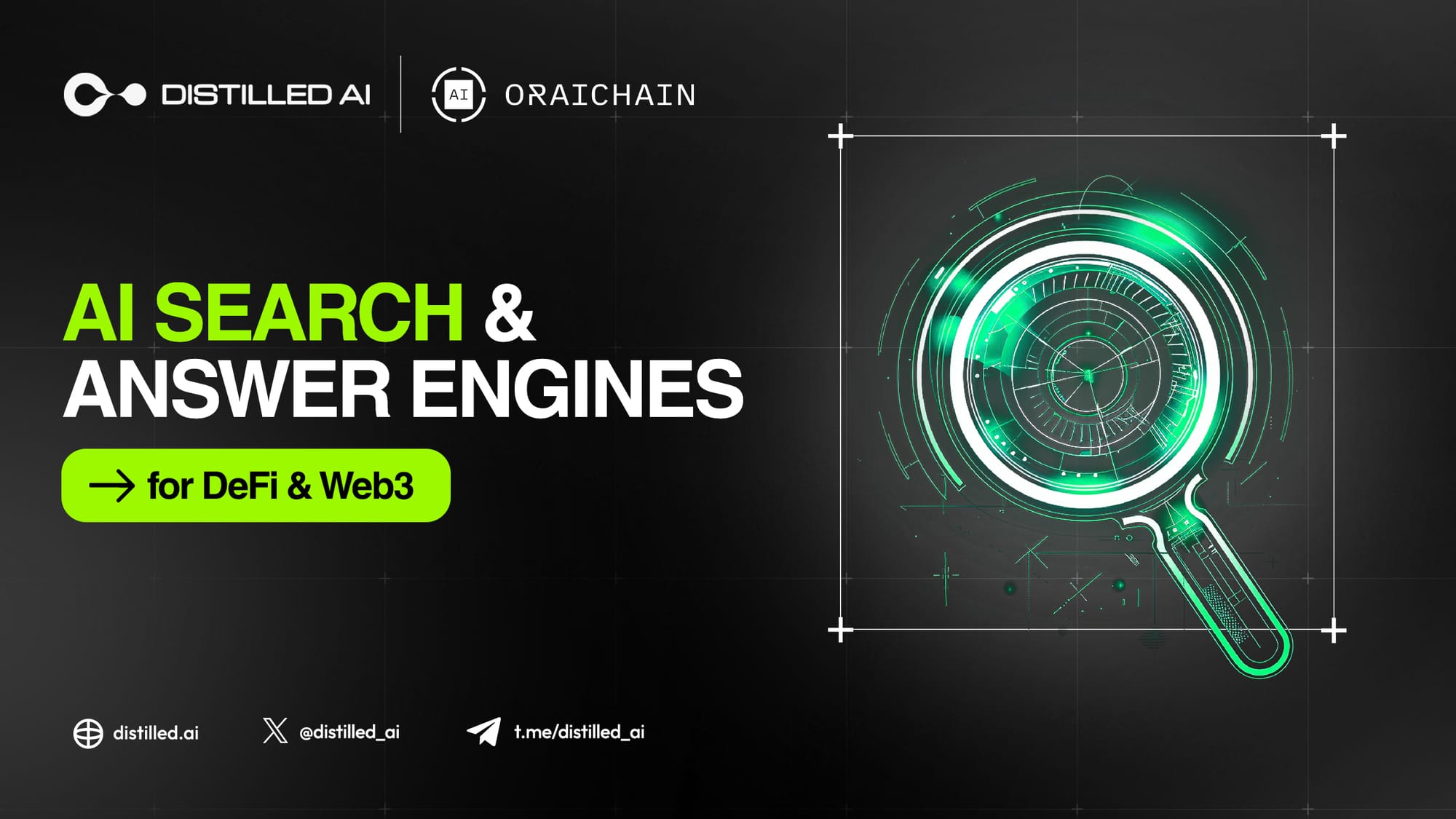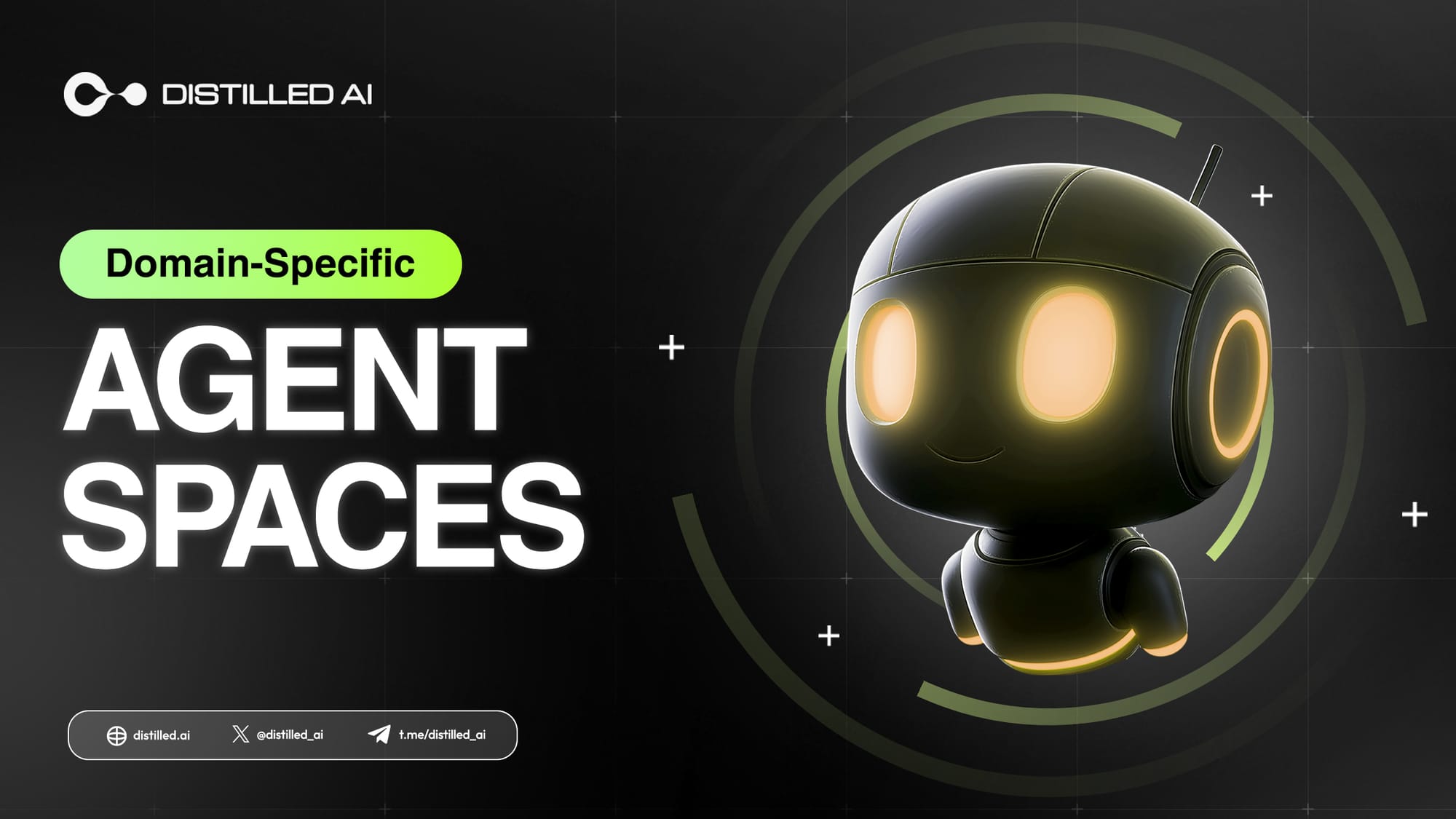- Our AI Agents
- About us
- Blog
- DeveloperComing soon
- Docs
- Enter MESH App
 Back
Back
AI Search and Answer Engines: The Future of Discovery
MAY 14, 2025
A single news item—Apple exploring AI search in Safari—yesterday wiped ~$150 billion off Alphabet's market value overnight. Big Tech is racing to embed AI-driven answers directly into browsers, search engines, and smart devices. Read on to see why specialized AI search for vertical domains like DeFi and Web3 is no longer optional; it's essential.
The Shockwave Moment
On 7 May 2025 Bloomberg broke news that Apple is “actively looking at” plugging OpenAI, Perplexity AI and other generative-search engines straight into Safari. Alphabet shares immediately slid 8.9 percent—erasing over $150 billion in market value.The reason? Google pays Apple about $20 billion a year to remain the default search engine on Safari. If Apple shifts that default to a competing AI search engine, Google risks losing billions in guaranteed traffic—and the ad revenue that comes with it (Reuters). One rumour—no code shipped—vaporised more capital than Nike’s entire market cap.
The tremor is bigger than an Apple-vs-Google skirmish. It signals that whoever delights users with AI-first answers can pry open a moat that the web’s largest ad business has defended for two decades. For Web3 investors, it is a real-time lesson in how quickly cash-flow assumptions can break when discovery paradigms flip.
From Links to Answers — The AI-First Search Playbook
Traditional search makes users shovel through blue links; AI search hands them a synthesized answer—often multimodal, source-cited and follow-up-ready.
- User momentum. OpenAI stated on 28 Apr 2025 that ChatGPT now handles over 1 B search‑style queries every week. By contrast, weekly search volumes across major engines reveal the shifting landscape: Google ~98B, Bing ~0.7B, DuckDuckGo/Brave ~0.3–0.7B, and Perplexity ~0.1B. Google remains dominant, but the growth curve clearly points away from keyword guessing toward dialogue-based discovery.
- Incumbent pivot. Google rolled “AI Mode” out to all U.S. Search Labs users last week, layering multimodal reasoning and Gemini snippets on top of its classic index.
- Cross-platform arms race.
- Microsoft Copilot’s new Deep Research mode collates and footnotes multi-step findings inside Office and Windows.
- Perplexity’s Comet browser, launching this month, follows your browsing history to pull context-aware answers—aiming straight at Chrome.
The common product truth: people prefer results over results pages. Links feel like latency; answers feel like leverage.
Distilled AI × Thesis.io — Building AI Search for DeFi & Web3
Why DeFi Needs Its Own AI Search Stack
DeFi queries blend text (e.g., “best ETH liquidity pools”) with time-series numbers, smart-contract state, and rapidly changing on-chain events. Generic AI search, optimised for unstructured prose, struggles to ground answers in token balances or validator slashing rates.
Our Dual-Index Architecture
Thesis.io’s forthcoming Distilled AI Search Layer braids:
- Off-Chain Corpus – Internet, whitepapers, governance forums, Social media like X/Twitter.
- On-Chain Corpus– live sub-second feeds from Layer 1 blockchains (like Solana, BNB, Oraichain, …), enriched with DEX order-flow, LP positions, and oracle prints.
A retrieval-augmented generator on top ensures every answer cites both ledger proofs and human context, reducing hallucination risk and giving quant traders audit trails.
Query-to-Execution UX
Imagine typing:
“Show ETH pools with TVL > $5 M, APR > 12 %, exclude pools funded by smart-money addresses older than 90 days, and open a 10 % allocation.”
Distilled AI:
- Parses the numeric constraints.
- Cross-checks TVL from on-chain subgraph plus APR oracle.
- Returns ranked pools with source hashes and links.
- Hands the set to execution module that routes the transaction to Oraichain’s DEX or any connected venue.
No tab-hopping; search becomes intent-to-action.
The Apple-Google tremor proved AI search can rewrite market caps overnight. The feature is no longer a novelty; it is the gateway to user intent—and therefore to revenue. Whoever masters AI-first discovery inside DeFi wins not just attention but transaction flow. That is why our product roadmap starts with search, ends with execution, and keeps every answer on-chain-verifiable.
For Web3 investors, the thesis is simple: as discovery shifts from keywords to answers, markets that are data-dense and execution-driven (DeFi, on-chain gaming, RWA tokenisation) will demand vertical AI-search stacks. Distilled AI and Thesis.io are positioning to own that beachhead.


Thank you!
Read more articles

LLMs Are Just the Sponge: Building the Full AI Cake with Agent Spaces
From LLMs to AI systems is a long journey. Just like a sponge alone doesn't make a cake, LLMs alone can't create the rich, layered AI experiences we rely on today. This article explores how the AI Cake is formed—how modular systems, orchestrated workflows, and agent spaces bring everything together. And more importantly, what Distilled AI is aiming to build: the infrastructure that transforms these ingredients into a scalable, composable AI economy. The Secret Recipe When most people interact
MAY 14, 2025

One Size Fits None: Why Domain-Specific Agent Spaces Win
As Agent Spaces begin to define how humans and AI agents collaborate, a critical design choice emerges: why not build a single Agent Space that does everything? A universal platform might sound efficient, but in practice, specialization beats generalization when solving hard problems. This article makes the case for domain-specific Agent Spaces—where modularity, focus, and community expertise create compounding value that no "do-everything" platform can match. Domain Specialization: The Compet
MAY 14, 2025

 Share article
Share article